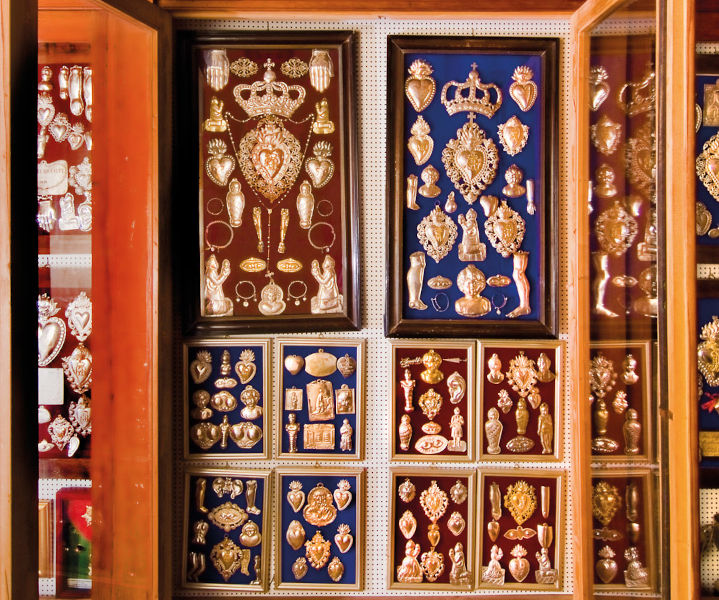Reading time: 4 min.
Every unpublished document generally contains something new. Well, the documents we are presenting here not only offer us an unknown piece of information, but also a welcome surprise; all the more so since they cross the borders of his century to reach us.
Don Bosco in France
Don Bosco’s name as educator and founder of works for poor boys was known and appreciated in France quite early on. Only the Alps separated Turin from France. From the Ligurian Riviera it was easy to move on to the French Riviera with its famous resorts in Monaco, Saint-Tropez, Hyères, Toulon, Cannes and the capital of the region, maritime Nice, which passed to France in 1860. French newspapers, French pilgrimages to Rome with a stopover in Valdocco and even an edifying biography (1881) all played their part. But above all Don Bosco’s journey through France (14 February–19 May in 1883), from the south to the north, with a lengthy time in Paris too, made him, as much for the people as for a certain conservative aristocracy, a new Saint Vincent de Paul, a new Curé d’Ars, a new Saint Francis de Sales. Don Bosco also frequented the south of France in particular, where he founded various works: at Nice, Saint-Cyr, Navarre, Marseilles. In the south then, and precisely at Toulon, he met and entered into close friendship and spiritual harmony with the Colle family: the most generous of all the noble families who helped him financially, including the well-known Fassati, Callori, De Maistre, Uguccioni etc.
Mrs Chambon’s request
The Chambon family lived in Toulon, but after seven years of marriage had not yet had the joy of a child. Agostina, who had come to know Don Bosco by his reputation as a man of God, if not a miracle worker, did not hesitate to write to him, asking him to pray that she might have the gift of the desired motherhood.
In the middle of mid-August 1885 at Mathi, where he was staying to escape the heat in Turin for a while, Don Bosco responded to her immediately. In his rough French he wrote: “You are asking, My Lady, for something serious, extraordinary, but not impossible. I will not fail to pray and get all our boys to pray according to your intention. But you for your part will do two things:
1. You will ask for grace without ceasing as long as it is not contrary to your eternal happiness.
2. You will say three Our Fathers every day to the Blessed Sacrament, over a year, and during that year you will do all the works of charity you can do for the orphans.”
In itself Don Bosco was not asking anything new: these were the usual recommendations to those who asked him to pray for their particular intention. Even the conclusion of the letter was the same: “May the Good Lord be with you and may the Blessed Virgin always protect you, your family, and please also pray for me and all my family.” The commitment was therefore a mutual one: each had to do their part regarding prayer and charity towards the needy. And Don Bosco pointed to the immense number of his 160,000 “orphans”.
It is not known if and how the lady accepted Don Bosco’s instructions, but the fact remains that on 24 March 1887 she happily gave birth to little Joseph.
The story does not end here
When the First World War broke out, Joseph, made a captain in the French army, was sent to the front and on 18 September 1915 his mother, who was very worried, promised to bring – without fixing the time or date – an ex voto (votive offering) to Don Bosco’s tomb, in obvious gratitude for the gift of motherhood.
Her son Joseph actually returned unharmed from the war, but for reasons unknown to us, the lady could not keep her promise. She did, however, mention it to her son, who was by now married and had become Intendant General of the Reservists. He asked his daughter Jeanne, passing through Turin, to fulfil her grandmother’s promise herself and thus bring a votive offering to the Saint’s tomb. But it was not possible for her, because they no longer accepted these at Valdocco. There were probably too many of them.
Having heard about this, the father did not give up and contacted the Rector at Valdocco by mail. He told him the little story we have reconstructed and as proof he enclosed a photocopy of Don Bosco’s letter and his mother’s. In lieu of the ex-voto he sent a beautiful offering (400 francs) not without adding that not only had his mother been a fervent admirer of Don Bosco and the Salesian works, but that the whole family held him in keen and grateful memory. He also thanked the Salesians at Valdocco for the particularly valuable gift given to his daughter: a relic of Don Bosco accompanied by the certificate of Causae postulator. The memory of being a gift from God thanks to the faith and charity of his mother and Don Bosco had not been lost on the war veteran and military man. Don Bosco’s prayer (and that of so many future mothers, such as Agostina), was answered many times by the Lord in his time and also after him through the intercession of one of his saintly pupils: Dominic Savio’s little stole when worn and accompanied by prayer and a Christian life, has often brought smiles to many families, wiped away the tears of so many mothers, flooded and still floods many cradles with joy.

